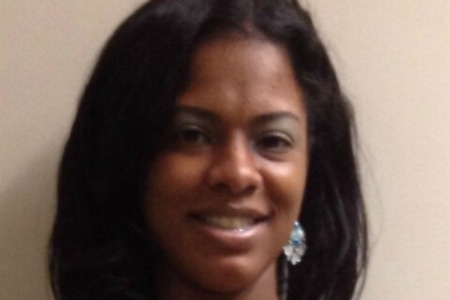
Illinois residents who would like to sign up for healthcare, but do not know how or would like a better understanding, might want to contact a Get Covered Illinois Navigator like LaShanda Howard.
“Navigators are people that assist, do outreach in communities, inform people about the Affordable Health Care Act and help them enroll,” Howard said. “We can enroll you over the phone, by paper application or in person. Our role is important because some people aren’t computer savvy or may not understand terms like co-pay, premium and deductible. We’re here to help them bridge the gap, understand, and stress the importance of having healthcare.”
Get Covered Illinois- The Official Health Marketplace is a website that helps consumers shop for the health insurance plan that meets their needs and fits their budget. Howard, who works for Children’s Home and Aid (a leading child and family service agency in Illinois), said she enjoys her career as a Navigator because it allows her to help others.
United Way Metropolitan Chicago has provided a grant for organizations such as Children’s Home and Aid to help people get health insurance.
“We’re bridging the gap and working with different agencies like Child Care Society and the Chicago Urban League.,” Howard said. “All of these great organizations, and we’re all partnering for the same cause- helping people get health insurance. We all cover more ground by linking up and canvasing so we can reach more people.”
Individuals interested in signing up for healthcare or want more information, go to www.getcoveredillinois.gov. On the website there’s an option to connect with a navigator in your area. Type in your zip code and a list of agencies and navigators near you will be provided.
There are some assessment questions that will be asked to figure out whether the consumer will go with public or private insurance.
“They’ll ask if you’re a resident of Illinois, your income, and household size,” Howard said. “You need to know your social security number and whether you want insurance for yourself or your whole family. All of that will determine whether you’ll go to the market (those who earn above 138 to 400 percent of the federal poverty level) or Medicaid (those who earn less than 138 percent of the federal poverty level). For both, the insurance is the same quality care.”
Individuals who don’t have health insurance by a certain time will have to pay penalties as it is now required by law to have it.
“Starting in January 2014, if you do not have insurance you will have to pay $95 when you file your taxes,” Howard said. “In 2015, if you still don’t have it, that fee will increase or go off of one percent of your annual income. The next year after that it’ll go up to 2.5 percent. The fee will continue to increase as long as you do not have insurance.”
If the fee is not enough for those who are on the fence to sign up for healthcare, Howard has a message for you.
“You should have it for your family. If you get sick tomorrow, this is set in place where everyone can have it,” she said. “Whether you have income or you don’t, it’s just the matter of us changing the way we think about it. We can’t think of it as an additional bill. Having health insurance is having a healthy lifestyle and preventing things before they happen.”